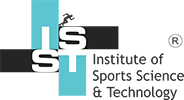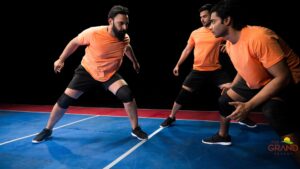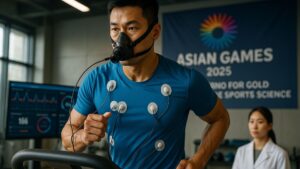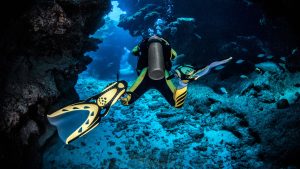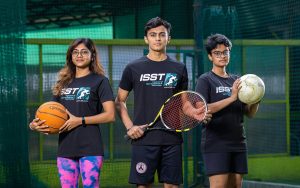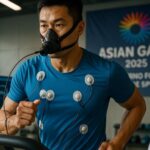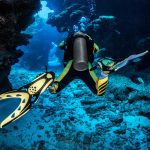Have you ever been captivated by the science behind peak athletic performance? Does the intricate dance between physiology, psychology, and nutrition in sports pique your curiosity? If so, a Master’s program in Sports Science could be the perfect launchpad for your dream career.
In India, the field of Sports Science is experiencing explosive growth. With a growing emphasis on holistic athlete development and achieving sporting excellence, qualified sports scientists are in high demand. This blog post, brought to you by the Institute of Sports Science and Technology (ISST) in Pune, India, will guide you through the essential steps to prepare for a Master’s program in Sports Science, equipping you to conquer entrance exams and build a compelling portfolio.
Igniting Your Passion for Sports Science
Think back to the last time you witnessed a breathtaking feat of athleticism. Perhaps it was Virat Kohli’s audacious cover drive or Mirabai Chanu’s awe-inspiring weightlifting performance. Sports science plays a crucial role in these moments of brilliance, optimizing training programs, preventing injuries, and maximizing an athlete’s potential. As Albert Einstein eloquently stated, “The important thing is not to stop questioning. Curiosity has its own reason for existing.” Fuel your curiosity and embark on a journey to unlock the secrets of peak athletic performance through a Master’s program in Sports Science.
Understanding Master’s Programs in Sports Science at ISST
ISST offers a comprehensive Master of Science (M.Sc.) program in Sports Science, catering to students with a burning desire to delve deeper into this fascinating field. The program equips you with a strong foundation in the scientific principles underlying athletic performance, preparing you for diverse career opportunities. Here, we’ll explore the specializations available within the M.Sc. program and the exciting career paths they unlock:
- Exercise Physiology: This specialization delves into the physiological adaptations that occur during training and competition. Graduates with this focus can pursue careers as exercise physiologists, working with athletes to design personalized training programs that optimize performance and prevent injuries.
- Sports Nutrition: This specialization explores the crucial role of nutrition in athletic performance and recovery. Graduates can become sports nutritionists, advising athletes on creating optimal dietary plans to fuel their training and competition needs.
- Sports Psychology: This specialization focuses on the mental aspects of athletic performance. Graduates with this focus can pursue careers as sports psychologists, helping athletes develop mental toughness, manage anxiety, and enhance their overall well-being.
Beyond these core specializations, ISST’s M.Sc. program offers the flexibility to tailor your studies through elective courses, allowing you to explore specific areas of interest within sports science, such as Strength and Conditioning, Biomechanics, or Sports Injury Management. This ensures your Master’s degree aligns perfectly with your career aspirations.
Essential Prerequisites for Success in ISST’s M.Sc. Program
Before embarking on your Master’s journey at ISST, a solid foundation is key. Here are some crucial prerequisites to ensure your success:
Academic Background
- Minimum Undergraduate Degree: To qualify for ISST’s M.Sc. program, you’ll need a Bachelor’s degree in a relevant field such as Kinesiology, Physical Education, Physiology, or Exercise Science. A strong academic record with a good understanding of scientific principles will be highly valued.
- Foundational Courses: Having a solid foundation in biology, chemistry, physics, and mathematics is essential. These subjects provide the scientific framework upon which the intricacies of sports science are built. If your undergraduate studies haven’t covered these areas extensively, consider taking refresher courses to strengthen your knowledge base.
Research and Practical Experience
While a strong academic background is crucial, demonstrating your passion and aptitude for sports science through research and practical experience can significantly boost your application. Here’s how:
- Research Experience: Participating in research projects under the guidance of professors or industry professionals in a sports science lab can be immensely valuable. This experience allows you to gain hands-on skills in research methodologies, data analysis, and critical thinking. Research experience also showcases your commitment to the field and your ability to contribute meaningfully to the scientific community.
- Volunteer or Internship Opportunities: Seek volunteer or internship opportunities in athletic settings. This could involve working with a local sports team, a fitness center, or a sports rehabilitation clinic. These experiences allow you to apply your theoretical knowledge in real-world scenarios, develop valuable soft skills like communication and teamwork, and network with professionals in the field.
By demonstrating a strong academic foundation coupled with relevant research and practical experiences, you’ll strengthen your application and stand out from the crowd.
Conquering Entrance Exams for ISST’s M.Sc. Program
Gaining admission to ISST’s prestigious M.Sc. program is a competitive process. Entrance exams play a crucial role in assessing your academic preparedness and potential for success.Here’s how you can strategically approach these exams:
Importance of Entrance Exams
Entrance exams serve a two-fold purpose:
- Program Selection: ISST may utilize entrance exam scores as a benchmark for selecting students into specific specializations within the M.Sc. program. For instance, a high score in a biology-focused exam might be more favorable for the Exercise Physiology specialization.
- National Recognition: Some entrance exams, like the UGC-CSIR NET (University Grants Commission – National Eligibility Test) in Life Sciences, hold national recognition and can open doors to research fellowships and teaching assistantships during your Master’s studies.
Strategic Preparation for Entrance Exams
Here are some effective strategies to conquer your entrance exams:
- Official Resources: ISST provides valuable resources such as previous years’ question papers and exam syllabi on their website (https://www.isst.co.in). Utilize these resources to familiarize yourself with the exam format, content areas, and difficulty level.
- Guidebooks and Online Courses: Several guidebooks and online courses cater specifically to entrance exams in sports science. These resources offer comprehensive study materials, practice questions, and mock tests that can significantly enhance your preparation.
- Practice Makes Perfect: Regularly practicing with sample questions and mock tests is crucial. This helps you identify your strengths and weaknesses, improve time management skills, and build exam confidence.
Remember, the key to success in entrance exams lies in a well-planned and consistent approach. Don’t underestimate the power of dedication and perseverance during your preparation phase.
Building a Compelling Portfolio (Showcasing Your Potential to ISST)
Securing admission to ISST’s M.Sc. program goes beyond just entrance exams. A well-crafted portfolio acts as a powerful tool to showcase your unique skills, experiences, and passion for sports science.
Tailoring Your Portfolio to ISST’s Program
Before diving into content creation, take some time to research ISST’s M.Sc. program website and faculty profiles. Identify specific areas of research or specialization offered by the program that align with your own interests. Tailor your portfolio content to highlight your experiences and skills relevant to those areas.
Content for a Powerful Portfolio
Your portfolio should be a dynamic representation of your academic and professional journey in sports science. Here are some key elements to consider including:
- Academic Achievements: Include your transcripts, awards, or recognition received during your undergraduate studies. Highlight courses that demonstrate your strong foundation in core scientific principles relevant to sports science.
- Research Projects: If you’ve participated in research projects, showcase them in your portfolio. Briefly explain the project’s objective, your specific role, and any key findings.
- Presentations and Publications: Have you presented your research findings at conferences or published them in academic journals? Include these achievements in your portfolio, demonstrating your communication and research skills.
- Practical Experience: Volunteer or internship experiences in sports science settings are invaluable additions to your portfolio. Briefly describe your responsibilities, the skills you developed, and any contributions you made to the organization.
- Letters of Recommendation: Solicit letters of recommendation from professors who can speak to your academic abilities and passion for sports science. Industry professionals you’ve worked with can also provide valuable insights into your practical skills and work ethic.
Remember, your portfolio is a personal narrative. Use clear and concise language to highlight your accomplishments and enthusiasm for the field.
Additional Tips for Aspiring Sports Scientists at ISST
Equipping yourself with the right knowledge and experiences is crucial, but there’s more to consider on your journey to becoming a successful sports scientist at ISST. Here are some additional tips:
Networking and Building Connections
The world of sports science is a vibrant community. Actively seek opportunities to network and build connections with professionals in the field. Here’s how:
- Attend Conferences and Workshops: ISST and other organizations frequently host conferences and workshops related to sports science. These events provide excellent platforms to learn from leading experts, network with peers, and potentially forge connections with professors or industry professionals who can offer valuable guidance.
- Join Professional Organizations: Consider joining professional organizations like the Indian Association of Sports Medicine (IASM) or the Indian Olympic Association (IOA). These organizations offer membership benefits like access to educational resources, networking events, and potential job opportunities.
- Connect with ISST Faculty: Don’t hesitate to reach out to ISST faculty members whose research interests align with yours. Express your interest in their work and inquire about potential research opportunities. Building relationships with faculty can prove invaluable during your Master’s program and beyond.
By actively engaging with the sports science community, you’ll gain valuable insights, expand your knowledge base, and potentially discover exciting career paths.
Demonstrating Passion and Dedication
While strong academic credentials are important, admissions committees at ISST also value genuine passion and dedication to the field. Here’s how to showcase these qualities:
- Highlight Relevant Personal Experiences: Do you participate in sports yourself? Have you volunteered with a local sports team? These experiences, even if non-professional, demonstrate your personal interest in the world of sports and your desire to contribute to athlete development.
- Craft Compelling Essays and Interview Responses: Use your application essays and interview responses to express your genuine passion for sports science. Articulate your career aspirations and how an M.Sc. program at ISST aligns with your goals. Demonstrate a deep understanding of current trends and challenges in the field, showcasing your intellectual curiosity and commitment to lifelong learning.
Remember, admissions committees are looking for individuals who are not just academically qualified, but also genuinely enthusiastic about the field of sports science. Let your passion shine through in your application!
Conclusion: Embracing the Journey Towards Sports Science Excellence at ISST
The path to becoming a successful sports scientist is an exciting journey filled with learning, challenges, and ultimately, immense satisfaction. By following the steps outlined in this blog post, you’ll be well-equipped to prepare for ISST’s Master’s program in Sports Science.
Remember, a strong academic foundation, relevant research and practical experiences, a well-crafted portfolio, and a genuine passion for the field are key ingredients for success. ISST, with its esteemed faculty and commitment to excellence, provides the perfect platform to launch your career in this dynamic and rewarding field. Take the first step today and embark on your journey towards becoming a leader in the ever-evolving world of sports science!
FAQs (Frequently Asked Questions)
- What are the career opportunities after completing the M.Sc. program in Sports Science at ISST?
Answer: Graduates of ISST’s M.Sc. program can pursue diverse career paths in various settings, including:
- Professional Sports Teams: Work with athletes to optimize performance, prevent injuries, and develop personalized training programs.
- Sports Medicine Clinics: Assist physicians in rehabilitation programs for athletes recovering from injuries.
- Fitness and Wellness Centers: Design personalized exercise programs and provide nutritional guidance to clients.
- Research Institutions: Conduct research to advance the field of sports science and contribute to the development of new training methodologies.
- Academia: Pursue a Ph.D. and embark on a career in teaching and research at universities or colleges.
- Does ISST offer scholarships or financial aid for the M.Sc. program?
Answer: ISST offers various scholarships and financial aid options to deserving students. We recommend visiting the institute’s website (https://www.isst.co.in) and exploring the “Scholarships” section for detailed information and application procedures.
- What are the application deadlines for the M.Sc. program at ISST?
Answer: Application deadlines for the M.Sc. program can vary depending on the intake term. It’s best to visit the ISST website’s “Admissions” section for the latest information on application deadlines and application procedures.
- Can I apply to the M.Sc. program if my undergraduate degree is not directly in sports science?
Answer: While a degree in a sports science-related field is preferred, ISST may consider applications from students with degrees in other relevant fields like biology, physiology, or exercise science. A strong academic record and relevant research or practical experience can strengthen your application. We recommend contacting ISST’s admissions department directly to discuss your specific situation.
- What are the benefits of pursuing a Master’s degree in Sports Science at ISST?
Answer: ISST’s M.Sc. program offers several benefits, including:
- Renowned Faculty: Learn from experienced and accomplished professors who are at the forefront of sports science research.
- Industry-Oriented Curriculum: Develop the skills and knowledge necessary to succeed in the professional world of sports science.
- State-of-the-Art Facilities: Gain access to cutting-edge laboratories and equipment to enhance your learning experience.
- Strong Industry Connections: Benefit from ISST’s network of industry professionals who can offer valuable mentorship and career opportunities.
By choosing ISST, you’ll be investing in a world-class education that will prepare you for a rewarding career in the exciting field of sports science!
